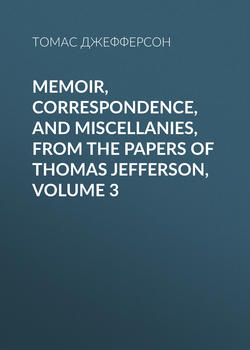Читать книгу Memoir, Correspondence, And Miscellanies, From The Papers Of Thomas Jefferson, Volume 3 - Томас Джефферсон, Thomas Jefferson - Страница 46
LETTER XLVI.—TO JOSHUA JOHNSON, December 17, 1790
ОглавлениеTO JOSHUA JOHNSON
Philadelphia, December 17, 1790.
Sir,
Though not yet informed of your receipt of my letter, covering your commission as Consul for the United States in the port of London, yet knowing that the ship has arrived by which it went, I take for granted the letter and commission have gone safe to hand, and that you have been called into the frequent exercise of your office for the relief of our seamen, upon whom such multiplied acts of violence have been committed in England, by press-gangs, pretending to take them for British subjects, not only without evidence, but against evidence. By what means may be procured for our seamen, while in British ports, that security for their persons which the laws of hospitality require, and which the British nation will surely not refuse, remains to be settled. In the mean time, there is one of these cases, wherein so wilful and so flagrant a violation has been committed by a British officer, on the person of one of our citizens, as requires that it be laid before his government, in friendly and firm reliance of satisfaction for the injury, and of assurance for the future, that the citizens of the United States, entering the ports of Great Britain, in pursuit of a lawful commerce, shall be protected by the laws of hospitality in usage among nations.
It is represented to the President of the United States, that Hugh Purdie, a native of Williamsburg in Virginia, was, in the month of July last, seized in London by a party of men, calling themselves press-officers, and pretending authority from their government so to do, notwithstanding his declarations and the evidence he offered of his being a native citizen of the United States; and that he was transferred on board the Crescent, a British ship of war, commanded by a Captain Young. Passing over the intermediate violences exercised on him, because not peculiar to his case (so many other American citizens having suffered the same), I proceed to the particular one which distinguishes the present representation. Satisfactory evidence having been produced by Mr. John Brown Cutting, a citizen of the United States, to the Lords of the Admiralty, that Hugh Purdie was a native citizen of the same States, they, in their justice, issued orders to the Lord Howe, their Admiral, for his discharge. In the mean time, the Lord Howe had sailed with the fleet of which the Crescent was.
But, on the 27th of August, he wrote to the board of admiralty, that he had received their orders for the discharge of Hugh Purdie, and had directed it accordingly. Notwithstanding these orders, the receipt of which at sea Captain Young acknowledges, notwithstanding Captain Young’s confessed knowledge that Hugh Purdie was a citizen of the United States, from whence it resulted that his being carried on board the Crescent and so long detained there had been an act of wrong, which called for expiatory conduct and attentions, rather than new injuries on his part towards the sufferer, instead of discharging him, according to the orders he had received, on his arrival in port, which was on the 14th of September, he, on the 15th, confined him in irons for several hours, then had him bound and scourged in presence of the ship’s crew, under a threat to the executioner, that if he did not do his duty well, he should take the place of the sufferer. At length he discharged him on the 17th, without the means of subsistence for a single day. To establish these facts, I enclose you copies of papers communicated to me by Mr. Cutting, who laid the case of Purdie before the board of admiralty, and who can corroborate them by his personal evidence. He can especially verify the letter of Captain Young, were it necessary to verify a paper, the original of which is under the command of his Majesty’s ministers, and this paper is so material, as to supersede of itself all other testimony, confessing the orders to discharge Purdie, that yet he had whipped him, and that it was impossible, without giving up all sense of discipline, to avoid whipping a free American citizen. We have such confidence in the justice of the British government, in their friendly regard to these States, in their respect for the honor and good understanding of the two countries, compromitted by this act of their officer, as not to doubt their due notice of him, indemnification to the sufferer, and a friendly assurance to these States that effectual measures shall be adopted in future, to protect the persons of their citizens while in British ports.
By the express command of the President of the United States, you are to lay this case, and our sense of it, before his Britannic Majesty’s Minister for Foreign Affairs, to urge it on his particular notice by all the motives which it calls up, and to communicate to me the result.
I have the honor to be, with great esteem, your most obedient, humble servant,
Th: Jefferson.
